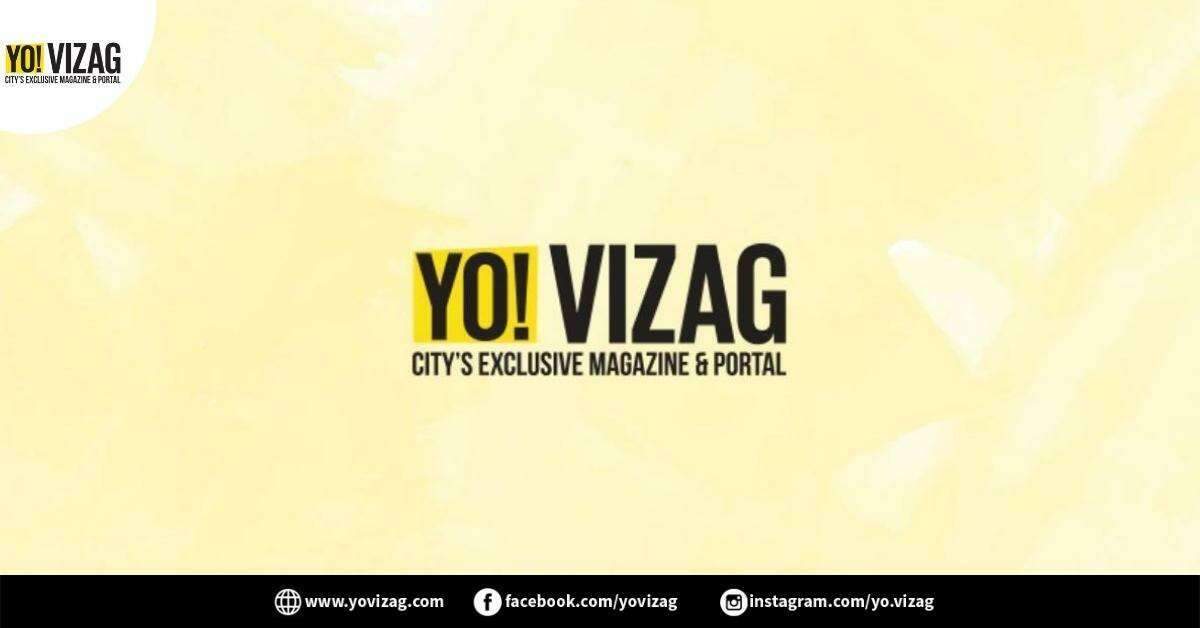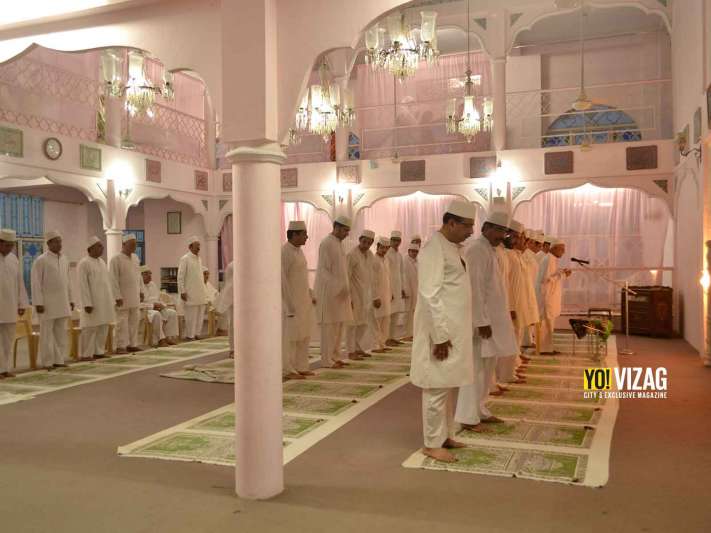

Happiness Through Prayers During Ramzan
For many people, the holy month of Ramzan is all about fasting by their Muslim friends, the iftar parties’ haleem and late night feasting on biryani. And no doubt, there is definitely a more intrinsic and powerful reason to this holiest Islamic month. After all, to the devout Muslim, Ramzan holds a very special place in their heart.
It is a month of praying and observing strict discipline in the form of self-restraint, so that the mind would focus primarily on the Almighty. Families and the whole community come together to strengthen their beliefs and make personal contributions for the wellness of fellow Muslims.
Yo! Vizag gets a few of Vizag’s traditional Muslim families to share the significance of Ramzan…
For every Muslim, Ramzan is the pillar of Islam. We believe that during this month, the holy book of Quran was brought down to the lowest level of Heaven. The Quran was brought down by Angel Gabriel who was sent by Prophet Mohammed. During the month of Ramzan, we believe that the doors of heaven are open and the doors of hell are closed. We offer maximum prayers during this holy month. We call this holy month Ibadat. As Bohra Muslims, we pray three times in a day. We pray at 4:15 AM, 1:30 PM and in the evening it depends on the timing given in the holy calendar. We fast basically to keep ourselves away from worldly pleasures. Sawaal is the day we celebrate the relieving of fast. The day is called Eid-ul-Fitr and with this the month of fasting comes to an end.
For us, the month of Ramzan is the holiest month in the calendar of the year. Apart from offering prayers to Allah, we offer alms to the poor. It’s called Zaqat. It is calculated by taking the total savings in a year after expenditure and out of that amount, 2.5% is given as alms to the poor.
During the holy month, we eat nutritious food and consume lots of liquids like juices so as to prepare ourselves to fast the whole day. We get up early in the morning around 3:30 AM and eat before sunrise. We break our fast in the evening after prayers with dates and water or barley. Then we have soup, salads, roti and meat. Sometimes we have biryani. Generally, we eat nutritious food to supplement the water loss in the body during the day. We eat in Thals
, which is a big plate which can serve 6-7 people at once. This practice is followed so that the food is not wasted.The Bohra Muslim community in the city is very small. So, all the families together are considered as one big family. Because of our busy schedules, we do not meet every evening. But when we have a holiday; all the families meet at the mosque, pray together and we all break our fast together.
Ramzan is observed as the most scared festivals in the religion of Islam. The reason being, the holy book Quran was introduced to the world in this month. The Quran has 30 chapters and each day 1 chapter was revealed to the Prophet Mohammed when he was in penance. This was when Islamism was in a very discrete position; Islam was insulted and was grieving. Islam was not being followed. During this time, the Quran was sent by the supreme Allah to Prophet Mohammed. It was during this time that the crime rate was very high and anyone who wielded the weapon was the ruler. To abolish that and to bring people onto one path, the messages were directly conveyed to the Prophet by which he preached Islam through Quran. From that time on, that month was declared as the sacred month.
The rich do not know the meaning of hunger and do not know how the poor suffer. To understand the poor man’s sufferings, roza has been indicated through Islam. Initially there was no set time to do roza, but as time passed, a rule was set. From the time of sunrise till sunset, one should not eat or drink. Astronomically, a time table is prepared and accordingly, in the morning Seheri is done. We get up early around 3:30 AM and we eat full-fledged meal. We stop eating at that particular point before sunrise. Roza should be observed by everyone after the age of 12.
In addition to fasting, other norms are also defined. Along with the designated five prayer times, the whole month is the phase committed to helping. We help in the form of Zaqat which is 2% of the total value of liquid cash or gold. This amount is distributed among the poor and the needy. Zaqat is emphasised in Islam to be done once in a year. In this holy month, every Muslim should fast, pray and not indulge in any bad things. During the day, all this month, we prepare elaborate food and different varieties of Sevaiyan. We also eat a lot of fruits.
Ramzan is the holiest month in the Islamic calendar. During this month, our families meet every day and do the namaaz together. Each individual family prepares a dish and we break our fast together. During the holy month, we observe the roza and regular reading of the holy book, The Quran. We make sure each of us do the namaaz strictly. Above all, we make sure that we do all the good deeds as prescribed by our tradition.
During this holy month, we wake up early, at around 3:30 AM and have something light, like rotis and cereals. Then we do the namaaz and begin our fast. We do the namaaz in the afternoon and again in the evening. After the namaaz in the evening, we break our fast with dates. To supplement the water loss in the body during the day, we drink lots of water and juices. Sometimes we make samosas and haleem at home. In our tradition, not only the family members, but anyone is free to join in and eat along with us.
Basically, the month of Ramzan is the month of service to the poor. We distribute food and sarees to the poor and the destitute. On the day of Eid, we prepare 100 kgs of Seveyain and distribute it to about 100 to 200 people. To prepare such a large quantity, we start off with grating coconuts and chopping dry fruits almost a week in advance. For us, Eid is all about providing service to the needy as well as the celebration of a festival. Our family believes in giving charity in kind rather than in cash. There are some poor, who come to our door step with their medical reports. We entertain them, but in kind and not cash. Our family is tied up with various organisations that serve the underprivileged. During this month, we help them with various needs in kind. The reason we do not prefer helping them in cash is because, we do not know how they would utilise the cash. During Ramzaan, according to the Islamic law, approximately 1/4th of our income should be donated to poor. This is called Zaqat. This money should be donated to those who are in real need of help and not to any random person or family.
Ramzan is the month of fasting and giving alms to the poor. Eid-ul-fitr is the name of the festival which signifies the end of the holy month. The name of the festival is derived from Fitra; the amount that we give to the poor. It is calculated according to the general value of wheat. This year, the value of wheat is Rs. 50/-. Accordingly we give away wheat, worth of Rs. 50/- to the poor. Zaqat is also given to the poor. Zaqat is given on two aspects, income and gold. The yearly income after expenses is calculated and 2.5% is calculated on the yearly savings. That calculated amount is given to the poor. Based on gold; if anyone in the family has gold more than 7 tholas, the worth of the gold according to the current market rate is calculated. From the calculated worth of gold, for every Rs. 100/-, Rs. 2.50/- is accumulated and given to the poor. The concept of Fitra and Zaqat is that, even the poor should be happy during Ramzan.
As Suni Muslims, we pray five times in a day all through the year. We pray before sunrise, at noon, in the evening, at sunset and before we sleep. During this holy month of Ramzan, along with the 5 times we pray, we combine Taraavi namaaz
with the prayer that we do before sleep. This prayer is a little longer. By means of this additional prayer, we complete the holy book of Quran during this holy month. It is believed that any person, who dies during this holy month of Ramzan, has a direct entry into heaven.During Ramzan, we get up around 3 AM and have something before 4:30 AM. This is called Seheri. We fast all day. We are not allowed to take any foreign things into the body. Not even medicines or our own saliva. Fasting is the connection between man and creator and not the creation. In the evening, we break our fast with dates. This is called Iftar. Then we eat nutritious food like haleem, rice porridge with meat and fruits. We eat lots of fruits to balance the water in the body. We are 4 brothers and 3 sisters. All our families meet in the evening to break our fast together.
This post was last modified on 27/05/2017 4:04 pm
While there are many amazing dishes that Italian cuisine has given us, pasta is loved…
Union Minister of Civil Aviation Ram Mohan Naidu Kinjarapu has announced that there will be…
With the weekend approaching quickly, limitless entertainment options exist for ultimate relaxation. OTT platforms schedule…
Tensions between India and Pakistan have flared following Operation Sindoor. On the night of 8…
The Visakhapatnam Railway Station, located in the heart of the city, is one of the…
A tragic incident was reported near the Gurudwara area in Visakhapatnam, where a 23-year-old woman,…
Leave a Comment